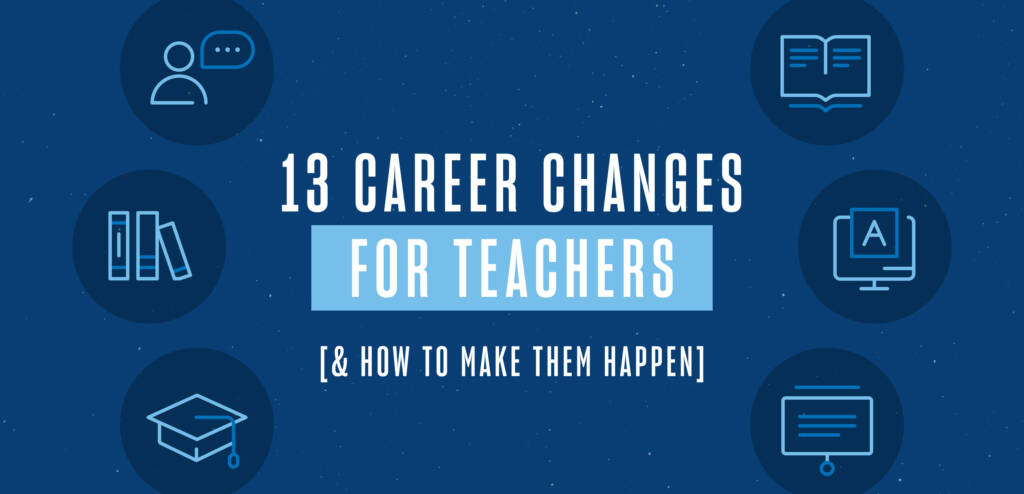To anyone unfamiliar with the title, “education specialist” may sound like just another word for teacher. However, an education specialist typically has a much broader — and, occasionally, much more specialized — role than a classroom teacher. Read on for a guide to education specialist roles, responsibilities and career outlook (Hint: Now is an excellent time to enter the field).
What Does an Education Specialist Do?
In the most general sense, education specialists help to optimize both teachers’ instruction and students’ progress in school. They work closely with classroom teachers, school administrators, students and even their parents or guardians to improve the quality and delivery of students’ education. They may work in the classroom, in administrative offices, in a remote location or a combination of all three. The role is typically a full-time position.
Want the Brochure for USD’s Online Master of Education Degree?
Earn your M.Ed. in just 20 months with a program designed for working professionals.
An education specialist may have a more specific title depending on their area of expertise, but common responsibilities include:
- Assisting students with special needs in the classroom
- Helping teachers implement educational technology
- Designing coursework, evaluations and testing
- Adjusting coursework to accommodate students with special needs
- Developing and implementing classroom organization strategies
- Providing recommendations to improve curriculum planning, individual lessons and teaching methods
- Communicating students’ academic expectations and progress to parents/guardians, guidance counselors and teachers
- Working with administrators to identify and acquire textbooks, school supplies and other resources
Education specialists can work with either a small group of students or a wide range of ages and grade levels. Depending on their experience, more senior education specialists may be heavily involved in school-wide curriculum design and deployment. These professionals are employed by all types of school systems — public districts, private academies, charter schools and more. They may even travel between multiple schools in a single day to provide their expertise.
Education Specialist Career Options
Not every school or district employs someone with the title “education specialist,” but there are many related roles that fulfill essentially the same function. Roles synonymous with or adjacent to educational specialist include:
- Classroom teacher: Responsible for daily academic instruction, classroom management, lesson planning and student evaluation in a school environment.
- School librarian: Manages a school library, helping students and teachers find and access library resources, check out books, use technology, etc.
- Academic advisor: Works closely with students to help them manage their academic progress, choose classes and prepare for post-secondary education or employment.
- Bilingual educator: Provides academic instruction in two languages, either as part of a foreign language program or to support students whose first language is different from the school’s primary language of instruction.
- Instructional and curriculum developer: Designs school-wide frameworks and selects content for coursework and classroom instruction.
- Principal: Serves as the head administrator for a school, coordinating and managing school activities, selecting and reviewing curriculum, establishing and communicating school-wide goals, setting policies and managing the school budget.
- Education consultant: A contract role hired to assess a school’s academic infrastructure and provide recommendations for improvements.
- Superintendent: The chief executive officer of all schools in a district, responsible for budgets and finances, leading the school board, supervising district principals and staff, lobbying for resources, monitoring student achievement, choosing and implementing educational programs and overseeing general school operations.
- School counselor: Provides both academic and personal guidance and support to students during school hours. They may also lead class units on topics like social-emotional development, physical development and conflict resolution.
- Gifted-education specialist: Works with students who demonstrate elevated proficiency in certain academic areas. May assist with designing and delivering more advanced coursework and creating appropriate assessments.
- Special education specialist: Works with students who have special needs, whether physical or cognitive. May assist in designing curriculum, delivering instruction and improving accessibility in and outside the classroom.
- Educational technology specialist: May work as a classroom teacher, such as in computer education, or as a member of a school’s informational technology department. May be responsible for researching, designing, implementing and instructing teachers in using new classroom technologies.
Salaries cover a huge range based on the responsibilities of each role. For example, a classroom teacher may make $30,000 a year, while a school principal may make nearly $170,000.
Typical Education Specialist Roles & Responsibilities
A day in the life of an education specialist may look different depending on the school or district — or even the day of the week!
For example, an educational specialist who focuses on a niche academic area may:
- Design learning engagements specific to one subject area
- Assist students with special needs in and between the classroom
- Work with gifted and talented students
- Manage resources for bilingual students
- Specialize in researching, selecting, implementing and maintaining educational technologies
In a more general role, an education specialist may be responsible for:
- Observing teachers and students in the classroom
- Determining changes to curriculum and instructional methods
- Analyzing student assessments and performance
- Communicating student development and progress to parents and guardians
- Helping teachers improve their teaching methods
- Working with students to identify academic challenges and needs
- Developing new curriculum for one or more departments
- Leading professional development courses for teachers
- Communicating observations and initiatives to administrators
Are You An Educator Considering the M.Ed Path?
Read the top 11 reasons to earn your master of education degree.
Key Skills & Characteristics of Education Specialists
Some educational specialists may be experts in a very specific area; for example, a mathematics coach or special education coordinator is expected to have in-depth expertise in their field. That said, there are many other professional and interpersonal skills that are highly valuable in education specialists. These include:
- Understanding of child psychology
- Excellent written and oral communication
- Creative problem-solving
- Planning and organizing
- Attention to detail
- Analytical skills
- Service-oriented
- Empathy
- Collaboration
- Ability to work independently
- Working well under pressure
- Adaptability
- Leadership skills
- Diplomacy
How to Become an Education Specialist
Ideal preparation for becoming an educational specialist is earning a bachelor’s degree in education. Appropriate concentrations include special education, early childhood education, secondary education or similar. You can become an education specialist with a bachelor’s degree in a different field, but either a master’s degree in education or some post-graduate experience in the classroom is preferred.
If a master’s degree is in your future, consider earning either a Master of Education, a Master of Arts in Teaching or any number of related graduate degrees. Within these degree programs, you may be able to specialize in concentrations like Curriculum and Instruction, Administration and School Leadership, Special Education, Educational Technology or any other discipline that will support your career goals.
Bear in mind that completion of these programs does not guarantee licensure; in order to work in the classroom and hold a number of other positions in a public school, you will likely need to complete a state-specific teaching certification exam.
To increase your chances of being hired as an education specialist, you may also want to gain hands-on experience in the classroom outside of an academic program. Research opportunities to volunteer, substitute teach or otherwise assist with school activities.
Joining a professional organization dedicated to educators can open up endless networking and professional development opportunities. Depending on your career goals, look into joining any of the following groups:
- The National Association of State Leaders in Early Education (NASLEE)
- Association for Educational Communications and Technology (AECT)
- National Association of Special Education Teachers (NASET)
Want the Brochure for USD’s Online Master of Education Degree?
Earn your M.Ed. in just 20 months with a program designed for working professionals.
Can You Get an Educational Specialist Degree?
Since the title “educational specialist” can refer to such a broad range of roles, graduate programs specifically for education specialists are not common. You may be able to earn an Education Specialist (EdS) degree only once you have completed an initial master’s degree program, such as an MEd.
Usually completed between a master’s degree and a PhD, an EdS program may focus on courses specific to curriculum design, pedagogy, leadership, educational policy and economics, child psychology and development, administration or research. These types of programs usually incorporate a strong practical component.
Education Specialist Salary & Career Outlook
Certain types of education specialists have the potential to earn upwards of $100,000 a year, though the current median annual salary hovers between $40,000 and $60,000. Job search sites Indeed, ZipRecruiter, Salary and Glassdoor offer different ranges based on location and title; the U.S. Bureau of Labor Statistics (BLS) reports those with the title “instructional coordinator” earned an average of $66,490 a year as of 2022.
Salary depends heavily on the school, district or geographic location; some schools and districts may have the budget to hire multiple education specialists, while others may share one throughout the entire district. School budgets should be a major consideration for applicants, since the travel requirement can have a significant effect on their day-to-day experience on the job.
In light of increased accountability measures, schools today are seeking experienced professionals who can identify creative solutions for improving student performance. Education specialists who focus on curriculum design and instructional methods are in high demand throughout the country, especially among schools with larger budgets. The BLS projects that opportunities in the field will grow 7% between 2021 and 2031, which translates to about 20,900 openings per year.
If you are a current or aspiring educator with a goal of improving school- or district-wide student performance, consider enhancing your skill set in a convenient, highly rated MEd program with a range of timely specializations. Taught by world-class instructors, many of whom have decades of experience in education, the online Master of Education program at the University of San Diego offers a flexible, asynchronous class schedule ideal for working professionals.
If you’re committed to pursuing innovative ways to improve the classroom experience, connect with a USD advisor today to learn more about this unique graduate program.




